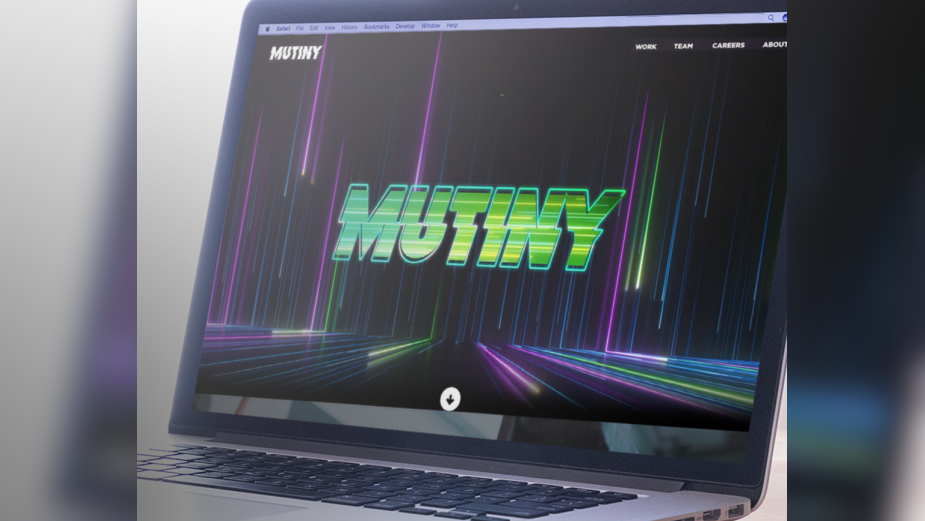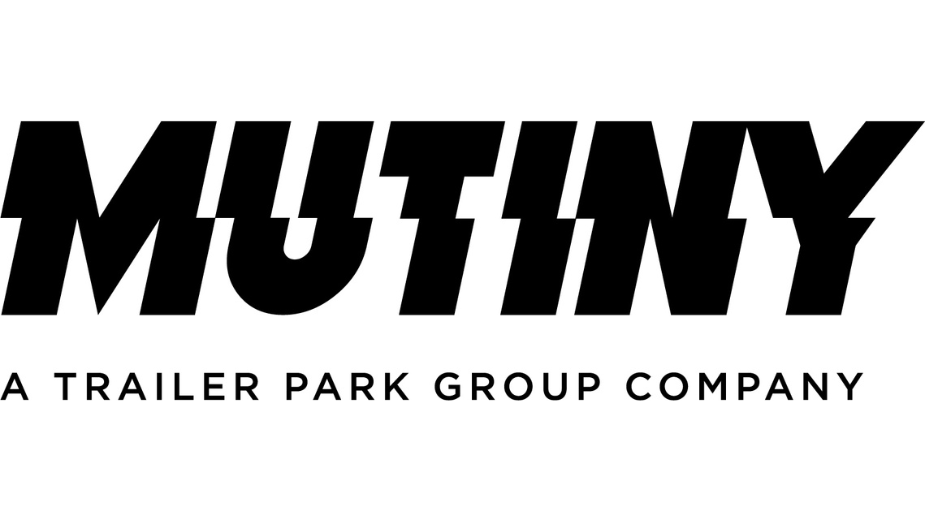
Why Trailer Park Group Is Staging a Mutiny in Gaming Marketing

Mutiny is the brand new gaming agency from entertainment marketing and content production experts Trailer Park Group (TPG). Utilising the gaming experience of its global network of agencies and production companies, TPG has decided to launch a dedicated and specialised global gaming division, with a mutinous name that states its aim of revolutionising the gaming marketing landscape.
Geordie Larratt-Smith was the SVP of gaming at TPG and now takes the mantle as SVP at Mutiny. A data-driven marketing leader boasting a decade of experience with brands including Microsoft Xbox, Azure, Intel, Reebok, Activision-Blizzard and more, he is optimistic about the opportunities for a dedicated agency like Mutiny in the gaming space - an industry set to hit a $250 billion valuation by 2025.
“We are incredibly bullish about the future of gaming, as well as what we are building with Mutiny. Some of Trailer Park Group’s largest clients in the broader media and entertainment space are all doubling down in the gaming space, so it was a logical extension to create a specialised gaming division that is fully integrated and backed by Trailer Park Group’s content production network.”
Noah Eichen is Mutiny’s executive creative director, and has created award-winning campaigns for a number of gaming and entertainment brands during his 17 plus years in the industry - including in-house projects for games company Red 5 Studios, and more recently, his work with Xbox, Minecraft, Ubisoft, Capcom and Microsoft during his time at Ayzenberg Group. Now ECD at Mutiny, he says that he brings his expertise into a “rapidly growing and evolving” industry.
“Gaming brands face increasingly new communications challenges. That’s where Mutiny comes in. Gaming audiences are incredibly passionate and vocal – and have no problem telling you everything they don’t like about your marketing, whether it’s your hero film or your tweets. There’s a lifetime of knowledge that is earned through participation in gaming communities and culture that is tough to teach or acquire. And that’s what makes Mutiny different. We’re not tourists in this category – we live and breathe it.”
Both Geordie and Noah have ‘lived and breathed’ gaming for as long as they can remember; from Noah’s father bringing home a NES console from a business trip in Japan, to Geordie competing in ‘Halo 2’ tournaments during high school. Now, they’ve levelled up to a specialised agency which allows them, more than ever, to bring their skills and knowledge to the fore.

According to Geordie, this next step in TPG’s gaming marketing is an opportunity to combine “the integrated creative and strategic power of a brand agency with the blockbuster creative production of an entertainment agency.” Whilst using this combination to create “bespoke approaches” for companies to reach gaming audiences, Noah highlights the importance of optimising the new agency’s culture from the get-go. He says he wants the hungry, entrepreneurial team to “feel empowered in their role,” and like they are contributing to a “creative, supportive, and fulfilling” working environment.
Operating at the intersection between two rapidly evolving businesses - gaming and modern media - Geordie explains that Mutiny’s approach to this “fierce competition for people’s time and attention” is rooted in audience obsession: who they are talking to, where they spend time, what subcultures they belong to, and how best to reach them without overtly ‘selling’ to them. “The core Mutiny team is focused on audience strategy and channel-agnostic creative ideas,” he adds.
This idea that gamers are not a monolithic entity runs centrally to how Mutiny has been structured, with agility and cross-channel relationship building in mind. Noah elaborates, “We are building Mutiny to be as agile and adaptive as the industry itself. Games are now synonymous with culture - just like fashion, music, movies, and sports. And we see a massive opportunity with the content and storytelling that goes into supporting and expanding the rich world of games.” He continues, “One of the biggest differences with gaming audiences is that you can’t necessarily buy your way into their hearts and minds. Fandom has to be born out of earned engagement.”
Mutiny’s “sweet spot”, according to the ECD, is unlocking insights that inform ideas which not only entertain, but land the required messages. The days of dropping a spot in a channel and expecting success are long gone, so Mutiny keeps the players in mind when creating content that drives engagement and conversations - often in formats that subvert the idea of what an ad is.
“The beautiful thing about gaming is that you have a very vocal audience that will tell you how you’re doing,” says Noah. “So, when we’re creating something, we have to challenge ourselves and be honest about whether or not this is something we would like or share or engage with. If the answer is ‘no’, then we have to go back to the drawing board.”
Starting in 2021, the evolution from just an arm of TPG’s existing capabilities to a fully-fledged agency in its own right has given Mutiny an infrastructure that provides flexibility, but also the ability to harness the support of a larger network. Geordie says, “Trailer Park Group has invested in the technology, security, and systems to ensure collaboration from an infrastructure standpoint,” and adds that the network has evolved culturally to perform remote work efficiently.
“We recently partnered with Mirada [a TPG company] to shoot our live-action campaign with Niantic Labs for ‘Pokémon GO’, and used our post-production studio, White Turtle Studios in India, to manage the post-production and localisation. That seamless integration was key to the success of that campaign, and being able to collaborate with artists across the world made the work better.”
Niantic Labs, of course, isn’t the only industry-leading client that Mutiny works with. Years of trust built between TPG and some of the top gaming companies means that - from launch - Mutiny already had a loyal client base and relationships with some of the best in the business, including Xbox, Riot Games and Ubisoft. Noah says, “We’re grateful to have the trust and support of our clients to bring ideas that push the boundaries. We’re most excited that our partners share a philosophy of putting the gamer at the centre of the experience, and an appetite to create innovative content and campaigns to reach them.”
Describing these partnerships as “a privilege”, Geordie shares that the Mutiny team loves to have a strategic and consulting role in solving communication and business challenges. However, when looking for new clients, Mutiny is equally capable of being more of a pure production partner - creating anthemic trailers for example, or visually arresting key art on individual projects. He adds, “Most importantly, we look for partners that put their audience first and guide decision making through the lens of what’s going to resonate with the target audience.”
In TPG’s Mutiny launch announcement, the SVP had previously said that, whilst it’s technically a ‘Mutiny’, forming the new agency is not an act of “rebellion” as such. Instead, he described it as a “proclamation for what’s possible in game marketing.” Now that the agency has been launched, ECD Noah elaborates on this philosophy. “It all comes back to our foundation of agnostic creative thinking - powered by audience strategy, agile production, and not being afraid to break some rules. The playbook of the past was great and we still love making trailers and big exciting live-action spots and events. But that playbook is evolving.”
He continues, ”It’s the insights and intention, the channel and talent strategy, the rollout, etc. that informs how you break through with content that not only reaches our intended audience, but speaks to them and builds advocacy. It’s all about connection now. The industry is, of course, catching on, but it’s not something you can passively engage in. You have to live and breathe it – or you’ll get left behind.”
This ability to catch on to changes early and be engaged in gaming culture is something that was prioritised by the Mutiny team when choosing who should lead the various departments, and especially through the hiring process. Noah says the team wouldn’t be anywhere without the “rising stars up and down our roster” which form a talented squad of experts - from creative to accounts, strategy and beyond. Geordie concurs, saying, “We are spoiled by our strategy team led by Nevada Carney. She brings a seasoned, integrated strategy background with experience across gaming, entertainment and brand work. And Ian Tornay, associate strategy director, is a brilliant games strategist who tees up our creative team with insightful, informative, and entertaining strategic platforms to inform creativity.”
“On the creative side,” adds Noah, “Our associate creative director Kate Eglen has been integral to our growth across Xbox over the past year, leading some of our most exciting activations. We have no shortage of talent on our team… I wouldn’t want to do this with any other crew.”
The Mutiny team is now 25-people-strong and - whilst not a compulsory factor in their hiring strategy - many of the team are actively involved in the gaming community outside of work. Despite gaming being encouraged, for Geordie, it’s all about authenticity, the ‘Mamba Mentality’ drive for self-improvement and the ability to share a unique perspective; not everyone has to go home and turn on their Xbox or PC after work, but he admits it does help to be immersed in the gaming world. Noah agrees, adding that early on, they suggested team members get an Xbox or PC to “dig deep into [their] clients’ business” and also to partake in weekly game nights and discord hangs with their co-workers.
Looking ahead to the rest of 2022 and to the future of Mutiny, Geordie recognises a “seismic shift” in the industry, driven by the rise of streaming and creator culture, which he believes will exponentially propel gaming further into the centre of cultural relevancy. An example of this is the frequent collaborations between content creators and celebrities from other industries. “It’s no longer surprising to see major streamers like ‘iiTzTimmy’ play ‘Apex Legends’ with popular musicians like Post Malone, or for ‘Tarik’ to stream ‘Valorant’ with Zedd,” Geordie says.
This level of pervasiveness that gaming has now reached in pop culture underscores just how significantly the gaming category and media landscape has evolved in a relatively short period of time. Furthermore, it shines a real importance on knowing how to navigate the developing ecosystem and communicate with gamers successfully.
As Mutiny hits the ground running, the SVP and ECD reveal that there are “some big things in the works,” with continued investment in the agency planned, as well as further expansions of its capabilities and collaborations with gaming titles “in a big way.” And, on the client front, the pair tease some fun campaigns with Mutiny’s partners at Xbox, with a focus on Xbox Accessories and Xbox All Access. “We are also always looking for great talent too,” says Geordie, “email us at hi@mutiny.gg to say hello!”












